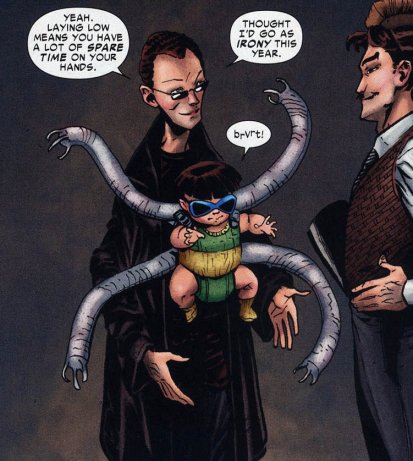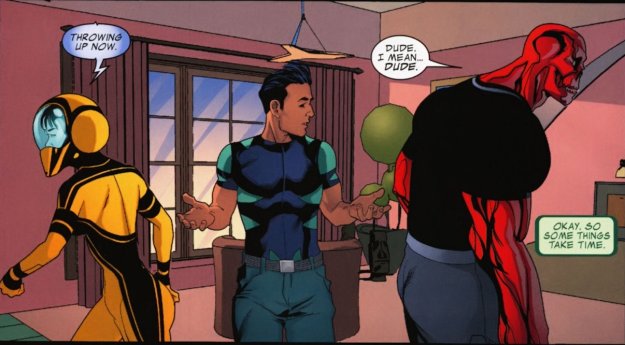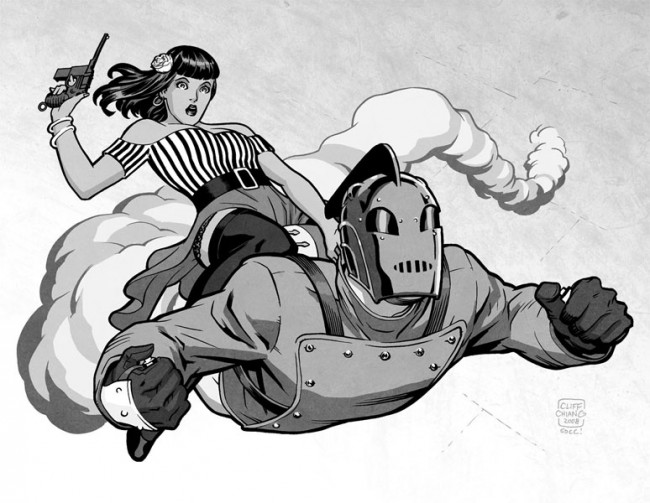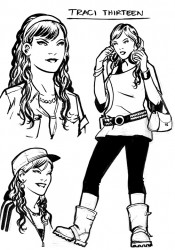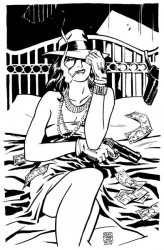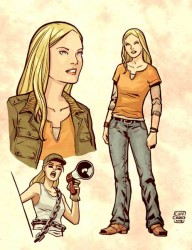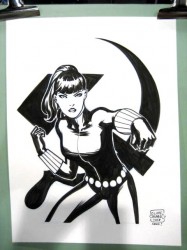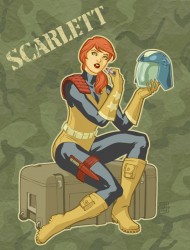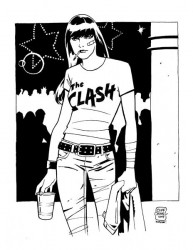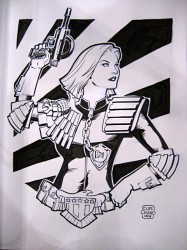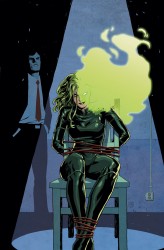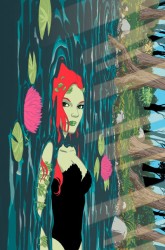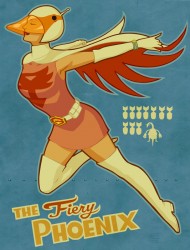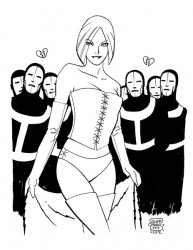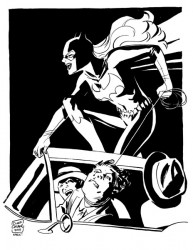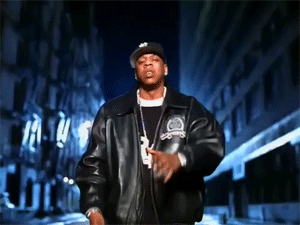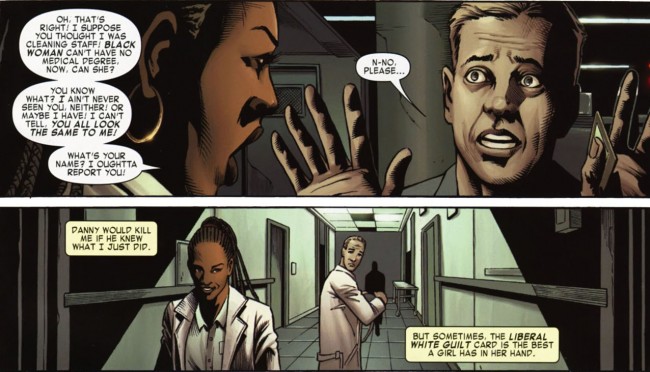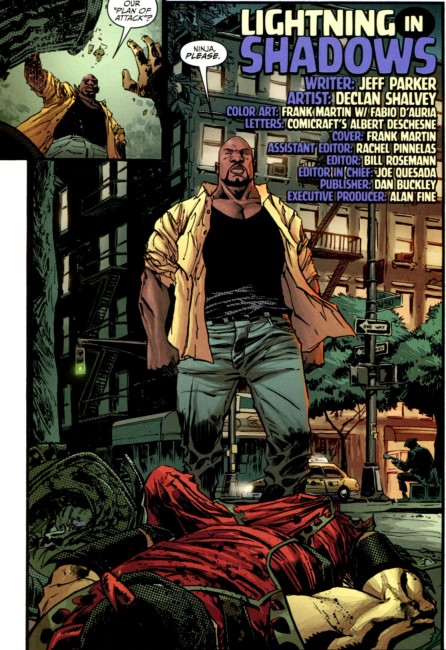
You’ve Got A New Horizon, It’s Ephemeral Style [Gorillaz]
November 9th, 2010 Posted by david brothers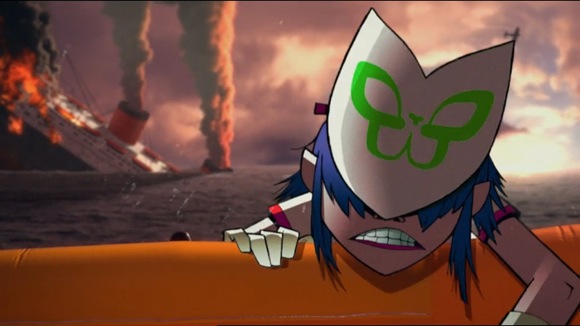
I’ve been pretty well obsessed with the Gorillaz lately.
I rediscovered them earlier this year when “Stylo” leaked, and I thought it was pretty okay. Later, after buying Plastic Beach late, I got into the habit of listening to all three of their proper albums every couple of weeks. I’ve been through the wikipedia pages explaining the meta-story, watched the videos on Youtube, and spent a lot of time thinking about the band.
It all comes down to fiction, I think. Telling stories and how you tell them. Each album is accompanied by a series of videos, background pieces, and text explaining its story. Each album, then, represents, or is part of, a story. The characters begin in one place and end up in another, for good or for ill, and each album evokes a specific mood or style. The narrative isn’t always clear just by listening to the album, the way the narrative in a comic isn’t crystal clear if you just have the art, but when you add in the other media, the picture becomes more filled in.
It’s modular storytelling, isn’t it? You can enjoy the Gorillaz on their own, just listening to the music and buying the albums every few years, and stop there. That’s how I did it until earlier this year. Gorillaz hit while I was in high school and got a lot of spins. I liked the joint with Del on it, even though I wasn’t even really a Del fan, because there was rapping. Demon Days
was college, and I think I gave it short shrift at the time. I forget what song I bumped on that one… these days, it’s “Feel Good, Inc.” I feel like I dug “Dare,” but I can’t call it. Regardless, I love it now. But that’s how you consume music, isn’t it? I listened, I liked the tracks I liked, and I kept it moving on to the next one.
You can also begin absorbing the other media info–the DVDs, music videos, website info, and so on. They fill in the picture around the album, expanding upon the mood and vague hints found on the albums. Why does Demon Days sound so dark? What is a “Plastic Beach?” If you wanted just the story, not the music, you could use Wikipedia, Youtube, and fan sites to get the job done. I think the music is an integral part of the narrative, personally, but whatever floats your boat.
Together, all the parts make one whole. You don’t need all of it to get the job done. Each individual piece has merit on its own, whether it’s as marketing or art. But together, you have something really interesting. You have a genuine narrative. It’s told in a fractured way, but you can track forward motion.
The Gorillaz themselves are fictional, the product of Damon Albarn, Jamie Hewlett, and whichever musicians they’re working with at the time. In the world of the Gorillaz, those musicians are used as in-story personalities. Del the Funkee Homosapien is turned into one of the spirits inside Russel’s head. De La Soul are malevolent forces in “Feel Good, Inc.” Shaun Ryder is a giant severed head turned music box.
Even their live band features other, standalone musicians operating under the umbrella of Gorillaz. Everything is subordinate to the story. Sure, we know that Albarn or members of The Clash are there, but while they’re on stage, they’re Gorillaz, which suggests a certain style or sound.
Look at the group, too. A young Japanese girl (20 years old this year). A black guy from the US. Two Brits. They don’t exist. They’re fake. And yet, they have detailed histories on Wikipedia. You can point out what they were doing on specific dates. They aren’t real, and yet, they are. Just like Batman.
This kind of thing is really interesting to me. I think most of what I’ve written about on 4l! is all about fiction and narrative. You can even look at the race stuff as pointing out things where storytelling got it right or wrong. It’s all about the telling of stories.
Everything is. That’s why I read comics, play games, watch movies, listen to music, and everything else. The rappers I like, the ones I come back to, paint pictures with their words. Sometimes it’s an entire story in one song, sometimes it’s evocative of a certain mood or emotion, or something it’s just a song about how they’re the best ever. It’s all creating something new, whether from the ashes of something old or entirely from scratch. Create and innovate.
I like the multimedia approach of Gorillaz a lot. It’s 2010, and I have more information available to me after a five second Google search than probably every person combined two hundred years ago. Coincidentally, my attention span is exponentially shorter than what people were working with two hundred years ago. I need a lot of information in varied formats and styles and I need it two weeks ago. The Gorillaz fulfills that need in some way by giving me a lot to absorb, and most importantly, whenever I want to absorb it.
Honestly, though, I’d kill for a Gorillaz comic. I need more Jamie Hewlett in my life.
(There’s this strange connection in my head between the Gorillaz and Jet Set Radio Future, the classic Xbox joint. I’m not sure if it’s because they share Miho Hatori [and maybe Dan the Automator?] or if they both were working in a similar flat kind of art style around the same time or what. They’re both fairly global in scope, too. JSRF and the Gorillaz have a multi-ethnic that synthesizes myriad and sometimes obscure influences to create something fresh.)

